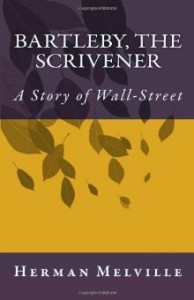I had had little experience working with kids. What I knew of children individually and in groups, came from the “practice teaching” experience at Brooklyn College, and my work at Frederick Douglas Junior High School, hardly a typical teaching experience. At Higley Hill I learned to look at children as full blown individuals, with their own quirks, skills, hopes and sorrows. I also learned that the cookie cutter approach to rules and regulations often did not work. The rules worked fine for some kids, but as for others. . . It helped to remember that I had been one of those kids for whom the rules hadn’t worked, spending my happiest time on my bunk reading instead of participating in the wholesome activities scheduled for me at my camps in Belgium. There were kids at Higley who hated arts and crafts or shlepping up and down hills and mountains to sleep outdoors (which made no sense if you think about it), and all those other “good” things we were busy devising for their entertainment and education. Some of the kids simply took the Bartleby, the
Scrivener’s approach to the camping experience, others being far happier helping the cook or the nurse, or doing real construction work, or keeping the vehicles running under the supervision of Manny or Billy. Each of these kids was a lesson for me, which was especially useful when I returned to my work at Inwood Junior High School at the end of each summer.
By this time a couple of years had passed and Linda and I had moved to Inwood, where we lived within walking distance of my work, which (while fun) was not entirely problem-free. One of the more interesting “problems” was a boy who had evolved into the terror of Jr. High School 52. His name was Pedro Gonzales, one of the Puerto Rican kids who were now part of our school, but Pedro seemed uncontrollable. When I met him, he could speak no English, and I spoke no Spanish, and yet, somehow, we hit it off. I always had a soft spot in my heart for the rebellious. In his case, part of his unhappiness was really his inability to make himself understood by his teachers, and the fact that he was being asked to sit in classes, all day, without understanding a word of what was going on. I later heard the story of how he had attempted to fly back to Puerto Rico. He had made it to Idlewild Airport (JFK’s former name), and tried (without ticket) to make his way back home to PR. However, as he couldn’t read English, he was stopped at the gate to the Los Angeles flight and brought back home.
Pablo and I became good friends. He would wait for me outside of my building in the mornings, and we’d walk together through Fort Tryon Park. As I was going through a bird watching phase, he pointed out birds to me, and I can still see the amazement on his face when he saw blue-jays and cardinals in their true colors in the city for the first time. Until then, all birds had just been little brown birds. I don’t remember how we communicated, but we did. Possibly, it was part of what I learned at Higley Hill.

